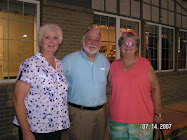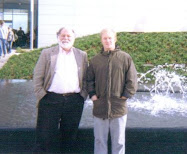
The Story of Champ d’Asile,
as told by two of the colonists.
Translated from the French by Donald Joseph and edited with an introduction by Fannie E. Ratchford. Dallas: The Book Club of Texas, 1937. 180 pages, green cloth hardback, illustrated end-pages, pictorial and map illustrations, with colophon noting its printing by the Rydal Press in Santa Fe, New Mexico. No index. Various other issues from time to time.
Demonstrate your casual, in-depth knowledge of Texas history or European literature. Mention to your developing youngsters Texas first novel. Demonstrate your acute critical discrimatory skills; tell them it's awful and they shouldn't read it.
This particular volume contains two separate works, the novella and a summarized history of the Champ d’Asile adventure, joined under the covers for convenience and edification of the readers. Although our interest here is the novella, The Heroine of Texas by G ….n F ….n, written by a still anonymous French writer, the true and amazing adventure by Napoleonic exiles who briefly planted a shallow French colony in today’s Liberty County in 1818 is intriguing. All this was between the Gutierrez-Magee-Kemper-Toledo “liberation” of Texas and the James Long Expedition. The 1810s decade in Texas was hardly somnambulant.
The “Napoleonic Conspiracy” involved several closetsful of actors and mixed motivations whose legal justifications rested on the French presumptions of the LaSalle claim and the temporarily quavering colonial claim by Napoleon’s brother-in-law, King Joseph of Spain, to the New World colonies. Ideally, through Champ d’Asile and its extension, Joseph would assume royal powers in the New World and rescue Napoleon. To that end, Napoleonic exiles in the U.S. and sympathizers in Europe, planned in 1816 - 1817 and performed in 1818 the colonial exercise that folded within months and re-scattered the French royal refugee revolutionaries. But, what about the novella? The quickly arriving colonialists returned to France, and their stories were wildfire. There were plays, pamphlets, histories – some even approximately accurate.
This particular volume contains two separate works, the novella and a summarized history of the Champ d’Asile adventure, joined under the covers for convenience and edification of the readers. Although our interest here is the novella, The Heroine of Texas by G ….n F ….n, written by a still anonymous French writer, the true and amazing adventure by Napoleonic exiles who briefly planted a shallow French colony in today’s Liberty County in 1818 is intriguing. All this was between the Gutierrez-Magee-Kemper-Toledo “liberation” of Texas and the James Long Expedition. The 1810s decade in Texas was hardly somnambulant.
The “Napoleonic Conspiracy” involved several closetsful of actors and mixed motivations whose legal justifications rested on the French presumptions of the LaSalle claim and the temporarily quavering colonial claim by Napoleon’s brother-in-law, King Joseph of Spain, to the New World colonies. Ideally, through Champ d’Asile and its extension, Joseph would assume royal powers in the New World and rescue Napoleon. To that end, Napoleonic exiles in the U.S. and sympathizers in Europe, planned in 1816 - 1817 and performed in 1818 the colonial exercise that folded within months and re-scattered the French royal refugee revolutionaries. But, what about the novella? The quickly arriving colonialists returned to France, and their stories were wildfire. There were plays, pamphlets, histories – some even approximately accurate.
You would have thought they were the returning Apollo 13 astronauts. It was big stuff. Texas was exciting to Europeans, even then. - WH






No comments:
Post a Comment